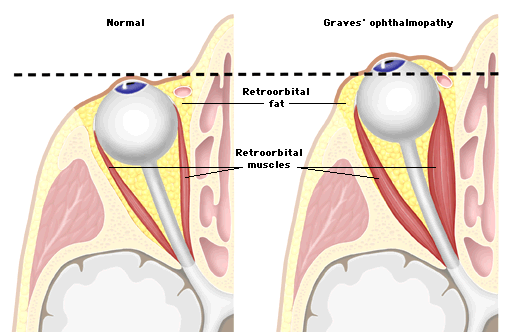Managing Thyroid Eye Disease
The thyroid gland is located in the front part of the neck. Despite the gland’s location, thyroid disorders can cause far-reaching problems throughout the body including the eyes. Changes in the eye (Graves’ orbitopathy or Graves’ ophthalmopathy) can be a result and is specifically associated with Graves’ disease, a thyroid disorder.
It is currently unknown why changes in the eyes and eye sockets occur in associated with Graves’ disease. However, since the immune system is known to be compromised with the disease, it makes sense that swelling and inflammation in the eye muscles and other areas around the eye would occur since the immune system is important for reducing inflammation.
If you have thyroid problems, you can begin an effective treatment plan by scheduling an appointment with a Sydney ENT doctor – ear, nose and throat doctor. Chances are that you will not be affected by thyroid eye disease if you are experiencing thyroid symptoms. However, if you are experiencing mild eye problems, effective management may be as simple as wearing protective eye covers at night and keeping your eyes lubricated with eye drops. Individuals with thyroid eye disease may also benefit from wearing polarizing sunglasses and keeping their homes humidity levels up with a humidifier. For temporary relief from redness, swelling, and pain, steroid medications may help.
If the problem worsens or does not improve, surgery is usually required. Swollen eyes can cause the cornea to continually be dry and irritated. Appearance of the eyes is also a concern for many people with the disorder. Corrective eyelid surgery will return the eyelids as close to their normal position as possible so that these problems are alleviated. Other types of surgical procedures including orbital decompression endoscopic sinus surgery are often used to improve vision and relieve eye pressure. These types of thyroid surgery procedures typically require the patient to stay overnight in the hospital and to undergo general anaesthesia.
If you have questions or concerns about a thyroid lump, contact your local doctor who will arrange for you to see a thyroid surgeon.


